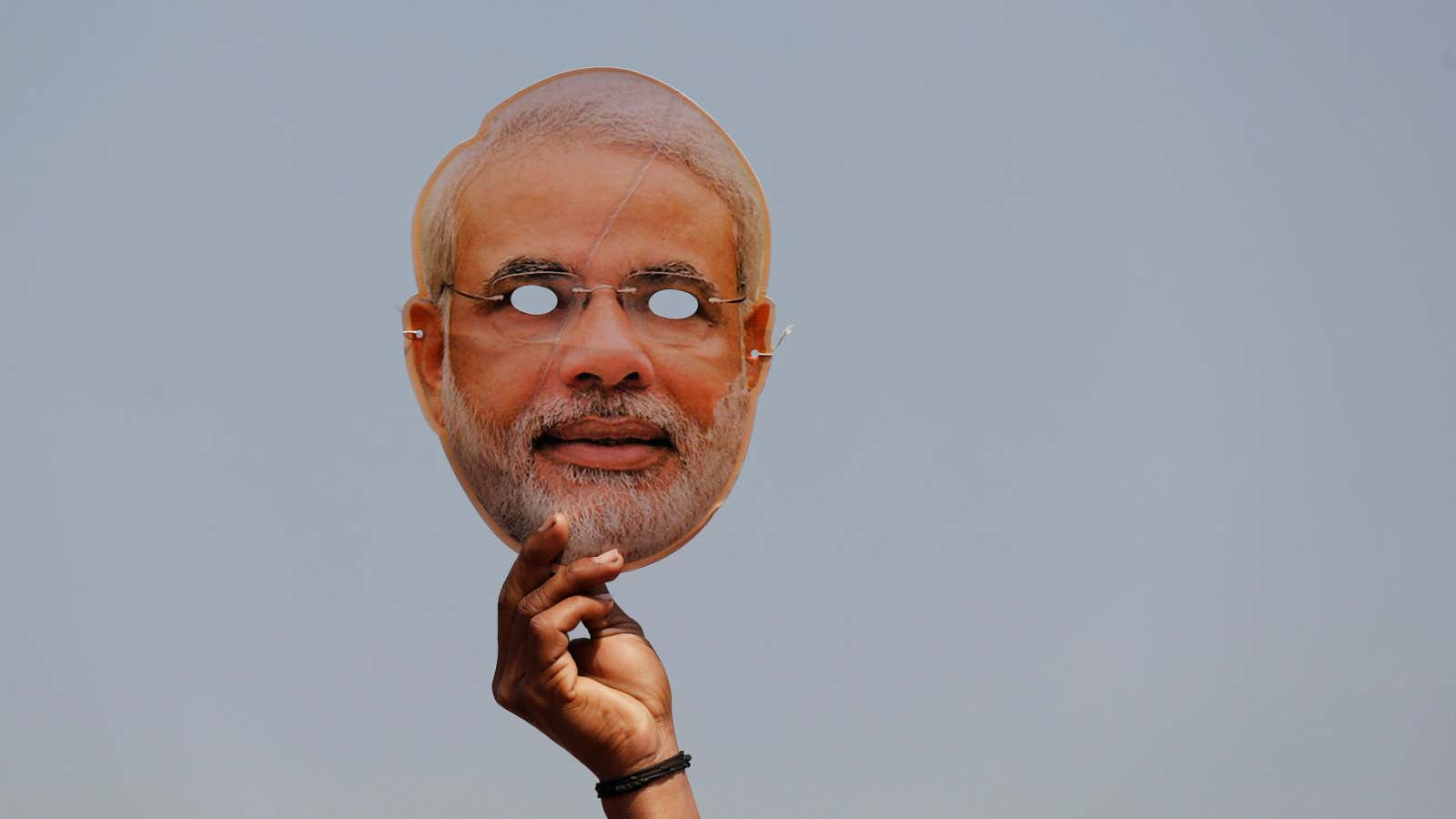India’s Bharatiya Janata Party (BJP) is once again the top political advertiser on Facebook in the country for the week ended April 13, after a steep drop-off the previous week.
Its latest ascent has come through spending on ads for its official party page, and not proxy pages, as has previously been the case.
Only two weeks ago, the official page of India’s leading opposition party, the Indian National Congress, had dislodged the ruling party and assumed the perch position in the list of political advertisers on Facebook. This was the first week during which a non-BJP-affiliated page was India’s biggest political spender on Facebook ads since February when the platform conducted the India roll-out of its ad library, a tool to boost transparency around political advertising.
The opposition party’s short-lived rise occurred largely because the pages that had earlier consistently topped the list—pro-BJP proxies including “Bharat Ke Mann Ki Baat,” “My First Vote for Modi,” and “Nation with NaMo,”— had stopped running ads entirely. The BJP’s official party page also did not run any ads that week.
A week later, however, the BJP has gotten back into the Facebook advertising game, though its proxies are still not running any ads. Some of those pages also seem to have lost their “verified” status—a blue check mark next to the page name.
The BJP’s official page has by far been the largest advertiser for the past week, spending over Rs51 lakh ($73,200). The second-largest advertiser, the Congress, spent just over Rs18 lakh.
Pages of southern Indian political parties were near the top for the past week too—which makes sense, considering that the first and second phases of the ongoing Indian elections, held on April 11 and April 18, respectively, involve constituencies in key southern states including Andhra Pradesh, Karnataka, and Tamil Nadu.
The BJP proxy pages, though not advertising, still top the list of overall advertisers since February.
It is unclear why the BJP’s proxies have vanished from the list of Facebook advertisers, but one reason could have to do with an investigative report by Huffpost India, published on April 04. The investigation claimed that the pages had often shared misinformation, exploiting the fact that they were not the official party mouthpiece to get away with such tactics.
Facebook also came under scrutiny after the Huffpost report said its ad library, which is supposed to list detailed information about advertisers, did not list key details about the proxy pages—including the fact that they were run by the same firm, Association of Billion Minds.
Quartz emailed Facebook over a week ago with questions about the actions it has taken against the BJP’s proxy pages, and has not yet received a response.
Read Quartz’s coverage of the 2019 Indian general election here.
